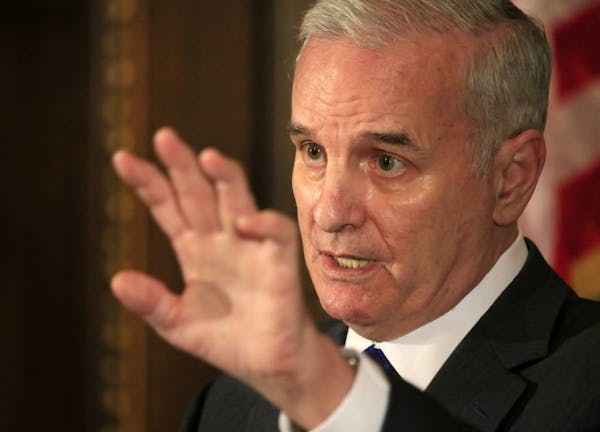Minnesota is edging closer to creating an online marketplace where more than a million people and small businesses will shop for health insurance.
House members debated the Minnesota health insurance exchange bill late into the night Thursday, then passed it 72-61. Previously, House and Senate negotiators had worked out a final compromise on the exchange, which will change the way one out of every five Minnesotans shops for health insurance next year. The Senate will take up its version of the bill next week.
The exchange is a key provision of the Obama administration's health care reforms. Its House sponsor, Rep. Joe Atkins, DFL-Inver Grove Heights, said it will save the state millions it now spends to care for the uninsured and bring competition to the health insurance marketplace that will drive down premium costs for all.
But critics have argued that it will drive the cost of health insurance up for all and be a costly, cumbersome government intrusion into the private marketplace.
"Obamacare is a scourge upon society," said Rep. Greg Davids, R-Preston, who nevertheless signed on as a co-sponsor of the House health exchange bill. He said he had high hopes that Minnesota can create a better insurance exchange than the federal government, but the final version of the House bill, he said, "fell short."
The exchange is intended to make it easier for individuals and small businesses to shop around for affordable health care. An estimated 1.3 million Minnesotans are expected to use the exchange, including 300,000 who are currently uninsured, starting next January.
The compromise reached by a conference committee stripped out a few key provisions of the exchange bill that passed the House last week, most notably its attempt to ban insurance companies from offering abortion coverage on plans sold through the exchange. The House had also wanted to limit the exchange board's ability to say which plans could be sold on the exchange. The final version gives the board the power to actively select plans for the exchange, starting in 2015.
The final bill also resolved a dispute between the House and Senate over how the exchange will be funded. Its $64 million annual budget will be funded by a 1.5 percent to 3.5 percent user fee on premiums of plans sold through the exchange.
The House began debate on the exchange bill Thursday afternoon, then suspended the debate for four hours, taking it up again at 9:30 p.m. At about 12:15 p.m. Friday, it passed the bill.
Deadline looms in a week
The Legislature must pass the exchange bill before it recesses for Easter break next week. If it misses the deadline to create a state-run exchange, it will have to use one created by, and run out of, Washington.
"A federal exchange, which is what we're going to end up with if we don't do this, is three times as expensive, operationswise," Atkins said. "This board that will run the Minnesota Health Insurance Marketplace is composed of seven Minnesotans. A federal exchange would be run out of the federal Department of Health and Human Services in Washington, D.C."
Jennifer Brooks • 651-925-5049
Guest lineups for the Sunday news shows
West Virginia will not face $465M COVID education funds clawback after feds OK waiver, governor says
Idaho group says it is exploring a ballot initiative for abortion rights and reproductive care

